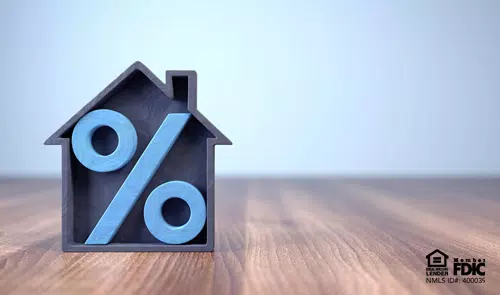The recent Federal Reserve rate cut has sparked interest among potential home buyers. It promises to make home loans more affordable.
For first-time home buyers, this could be a golden opportunity. Lower mortgage rates mean reduced monthly payments.
This change can increase your purchasing power, allowing you to consider more expensive homes. But it's not without challenges.
Increased competition among buyers might drive up home prices. Understanding the implications of a rate cut is crucial.
This article will guide you through the benefits and risks. You'll learn how to navigate the housing market effectively.
What is a rate cut and why does it matter?
A rate cut occurs when a central bank lowers interest rates. This decision affects borrowing costs, making loans more affordable.
Understanding why rate cuts matter is crucial for homebuyers. Here's how a rate cut can influence the housing market:
- Lowers mortgage rates, reducing monthly payments.
- Increases the affordability of homes, allowing buyers to spend more.
- Stimulates economic growth by encouraging more buying activity.
Understanding these effects enables potential buyers to make informed decisions. They can leverage lower rates to secure favorable home loans.
Rate cuts don't only affect home buyers but also the broader economy. It's a strategic tool to boost spending during economic slowdowns.
How does a rate cut affect mortgage rates and home loans?
When a rate cut occurs, mortgage rates usually decrease. This change directly affects the cost of borrowing for home buyers.
Cheaper mortgage rates mean lower monthly payments. This allows buyers to afford more expensive properties. Additionally, rate cuts can lead to significant savings over the loan’s duration.
The impact of rate cuts on home loans can be summarized as follows:
- Reduces overall interest costs for buyers.
- Enhances affordability and purchasing power.
- Encourages competition among lenders to offer better rates.
Lower rates can also make refinancing existing home loans more attractive. By refinancing, homeowners can secure lower payments or reduce loan terms.
Home buyers need to track mortgage rate trends closely. This vigilance ensures they capitalize on opportunities to secure the best rates available.
Benefits of a rate cut for first-time home buyers
A rate cut offers various perks for first-time home buyers. Reduced interest rates make the financial hurdle of buying a home less daunting.
Lower rates often translate to reduced monthly mortgage payments. This means less money devoted to interest, allowing more funds for other expenses or savings.
For many, these changes increase the chance of buying a home earlier. Here are some key benefits:
- Easier entry into the housing market.
- Lower initial costs and monthly payments.
- More funds are available for other financial goals.
First-time buyers might also find it simpler to secure a mortgage with favorable terms. This presents a valuable opportunity to secure a low rate, ensuring manageable payments throughout the loan's lifespan.
Potential challenges and risks for home buyers after a rate cut
While rate cuts can be beneficial, they also come with challenges. Increased competition is a common side effect as more buyers enter the market.
Such competition can lead to higher home prices. This could offset the benefits of the reduced interest rate savings for some buyers.
Potential home buyers should stay aware of these risks:
- Rising home prices due to buyer competition.
- Pressure to make quick purchasing decisions.
- Overextending budgets due to low interest rates.
Additionally, navigating a competitive market may lead buyers to make rushed decisions. It's crucial to remain patient and ensure the home purchase aligns with long-term financial goals. Careful planning and a clear understanding of the market can mitigate these risks.
Home buying tips to make the most of a mortgage rate drop
Taking advantage of a mortgage rate drop requires strategic planning. Start by getting pre-approved for a mortgage to establish your buying power.
Pre-approval gives you an edge in competitive markets. It also shows sellers that you are serious and financially ready to proceed.
Consider these key home-buying tips to maximize your benefits:
- Lock in the low rate as soon as possible.
- Compare different lenders for the best deals.
- Assess the total cost of home ownership.
- Stay informed about future rate changes.
It's wise to consult with a financial advisor. They can provide tailored advice based on your financial goals and situation.
Moreover, maintain a good credit score. Lenders offer better rates to buyers with stronger credit profiles, which enhances your purchasing power.
Using these strategies, you can capitalize on a rate drop effectively. Ensure your home purchase is a sound financial decision for years to come.
Should you refinance your home loan after a rate cut?
A rate cut often encourages homeowners to refinance. Lower rates can significantly decrease your monthly mortgage payments.
Consider refinancing if you plan to stay in your home long term. This strategy can help you save on interest costs over the loan's duration.
Evaluate these factors before deciding to refinance:
- Current interest rate versus new rates.
- The costs associated with refinancing.
- How long do you plan to stay in your home?
Refinancing isn't always the best option for everyone. It's crucial to weigh potential savings against the costs involved.
Seek advice from a mortgage expert to explore whether refinancing aligns with your financial goals. Make an informed choice based on your specific situation.
Key factors to consider before buying a home in a low-rate environment
Buying a home in a low-rate environment offers unique opportunities. However, it's essential to evaluate your readiness. Assess your financial health and plans carefully.
Consider these key factors as you prepare to buy:
- Affordability of monthly payments.
- Hidden costs like closing fees and property taxes.
- Your credit score's impact on interest rates.
It’s also wise to study the local housing market. Understand how rate cuts might influence home prices. Think about how long you plan to live in the home.
Making informed decisions helps ensure your investment is sound and aligns with your long-term goals. Take time to research thoroughly.
Conclusion: Making smart moves as a rate-cut home buyer
Navigating the home-buying process during a rate cut requires savvy decisions. Low rates provide a chance for enhanced affordability. However, staying informed and prepared is crucial.
Assess the total cost of home ownership, not just mortgage payments. Consult with financial experts to tailor advice to your situation. Being proactive helps in capitalizing on benefits while minimizing risks.
Ultimately, a rate cut can be a powerful tool for home buyers. Use it wisely to secure your dream home and establish a solid financial foundation.




